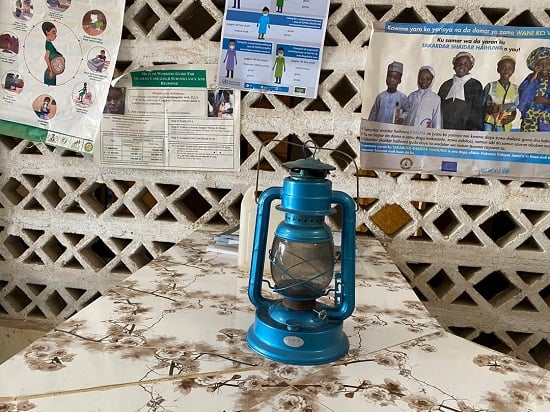Dong health centre runs on this kerosene lantern
President Muhammadu Buhari says Nigeria is working towards moving away from using kerosene lighting by 2030.
In a statement by Garba Shehu, Buhari’s spokesperson, the president said this on Thursday at a virtual meeting hosted by US President Joe Biden on energy and climate change.
Buhari said Nigeria’s plans to improve public transportation, forest programmes, and reduce kerosene lighting will enable a significant reduction in carbon emission by 2030.
“Our updated NDC includes the waste sector which is expected to contribute to the reduction of Nigeria’s greenhouse gas emissions,” Buhari was quoted as saying.
Advertisement
‘This development raised an additional two percent to the Nationally Determined Contribution from 45 percent to 47 percent conditionally and 20 per cent unconditionally below business-as-usual.
“Other action plans that are inherent in our NDC include; elimination of kerosene lighting by 2030, increase in the use of bus rapid transit as a means of transportation for the general public, 50 percent reduction in the fraction of crop residues burnt by 2030 and implementation of forest programmes, initiatives to deliver 20 percent greenhouse gas emission reductions and enhanced removals equivalent to approximately 74.2 Metric tons of carbon dioxide by 2030, and Ratification of the Kigali Amendment to the Montreal Protocol to phase out hydro-fluoro-carbon emissions.”
Buhari added that Nigeria is developing national frameworks for carbon pricing, and that the country had finalised action plans for NDC implementation in key sectors including: energy, oil and gas, agriculture, power, transport, and waste.
Advertisement
He said Nigeria is living up to its commitment to the global methane alliance which it joined in 2019, adding that the target is to reduce methane to at least 45 percent by 2025, while a 60 to 75 percent reduction will be done by 2030.
“Nigeria’s 2019 national plan to reduce has started through the required voluntary actions, with an initial focus on elimination of short-lived pollutants methane in the oil and gas sector,” he said.
“Our plan aims to improve air quality and reduce Nigeria’s contribution to climate change through 22 specific mitigation measures in eight source sectors (transportation, cooking and lighting in households, industry, waste, oil and gas, agriculture, power and Hydro-Fluoro-Carbon) as well as adoption and ratification of the Kigali Amendment to the Montreal Protocol aimed at phasing out Hydro- fluoro-carbon emissions.
“The full implementation of these measures would be effective in reducing short-lived pollutants, with an 83 percent reduction in black carbon emissions by 2030 compared to a business-as-usual scenario, and 61 percent reduction in methane emissions.
Advertisement
“These measures are also effective in reducing other air pollutants, such as nitrogen oxides and particulate matter, and also reduce carbon dioxide emissions.”
Add a comment






